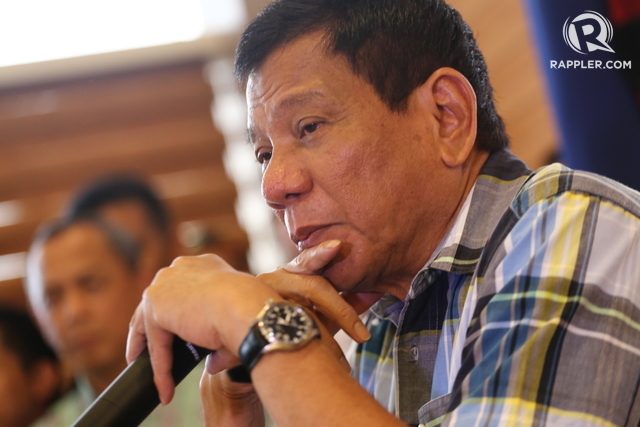SUMMARY
This is AI generated summarization, which may have errors. For context, always refer to the full article.

MANILA, Philippines – The Philippine economy flew out of the gates in 2016, but despite the strong start, analysts aren’t getting carried away with their projections.
Data released by the government on May 19 showed that the country’s gross domestic product (GDP) grew by 6.9% in Q1, the fastest it has grown since 2013. It beat forecasts and topped the region, including China.
Former budget secretary Benjamin Diokno believes some credit should go to unique circumstances this year, particularly the elections and the increase in domestic spending as President Benigno Aquino III prepares to end his term.
“Massive election spending and the mad rush to complete public infrastructure projects could explain the strong GDP growth in Q1, even Q2,” said Diokno in an email to Rappler.
Diokno, who served as budget chief under Joseph Estrada’s administration, went on to point out that the strong growth in Q1 is consistent with past experience. The previous 4 peaks – 2004, 2007, 2010, and 2013 – all coincided with elections.
Based on data from the World Bank, the country grew by 6.7% in 2004, followed by growth in the low 5% range. It then climbed to 6.62% in 2007.
In 2010 when Aquino was elected, GDP shot up to 7.63%, and then fell during the global financial crisis to 1.15% before rebounding to 7.18% in 2013.
Socioeconomic Planning Secretary Emmanuel Esguerra earlier said that the boost in spending during elections is usually estimated at 0.3 to 0.4 percentage points to GDP based on previous elections.
He pointed out, however, that “growth in the second quarter of an election year is usually stronger than in the first quarter,” while maintaining the official projection of 6.8% to 7.8%.
Diokno, for his part, expects full-year growth of between 6.1% and 6.2%, adding that the strong economy in the first half of an election year is generally followed by a slower second half due to the change in leadership.
The Bank of the Philippine Islands (BPI) echoed this with a full-year projection of 6.2%, which BPI senior research officer Nicholas Mapa said depended on the ability of Rodrigo Duterte’s administration to hit the ground running.
“The strong start to 2016 will help offset a possible slowdown in the second half of the year as government spending is expected to slow, as it usually does during a transition year,” he said.
But Mapa added that “should the new administration learn their trade quickly and disburse the remaining budget, we could see GDP numbers north of our initial projection.”
Second half headwinds
Besides the transition, Diokno said the new administration will also have to deal with negative agricultural output and flattish net external trade.
The flattish net external trade, or exports minus imports, is driven partly by the sluggish and volatile global economy, which is due to the slowdown in China and other big emerging economies, notably Brazil and Russia.
Mapa added that additional headwinds to the 6.8%-7.8% growth target include the La Niña weather phenomenon expected in the last quarter of 2016, potential hikes by the US Federal Reserve, and a sustained rise in oil prices.
The US Fed last week signaled a possible interest rate hike in June – a largely unexpected move that drove up global volatility on the strengthening dollar, which generally leads to capital being pulled from emerging markets.
Oil prices have also started to rebound, hitting $47 earlier this month from a low of below $30, amid increased demand and lower production from non-OPEC countries.
“Duterte has espoused continuity and his decision to adopt Aquino’s previous economic plan is welcome. However, we are still waiting to see how his incoming Cabinet will implement the said agenda,” Mapa said.
“Duterte will also be up against base effects as the second half of 2015 saw accelerated levels of growth, so the deck is stacked against him. Can he punch his way out of this first round? Filipinos wait and hope he does.” – Rappler.com
Add a comment
How does this make you feel?
There are no comments yet. Add your comment to start the conversation.